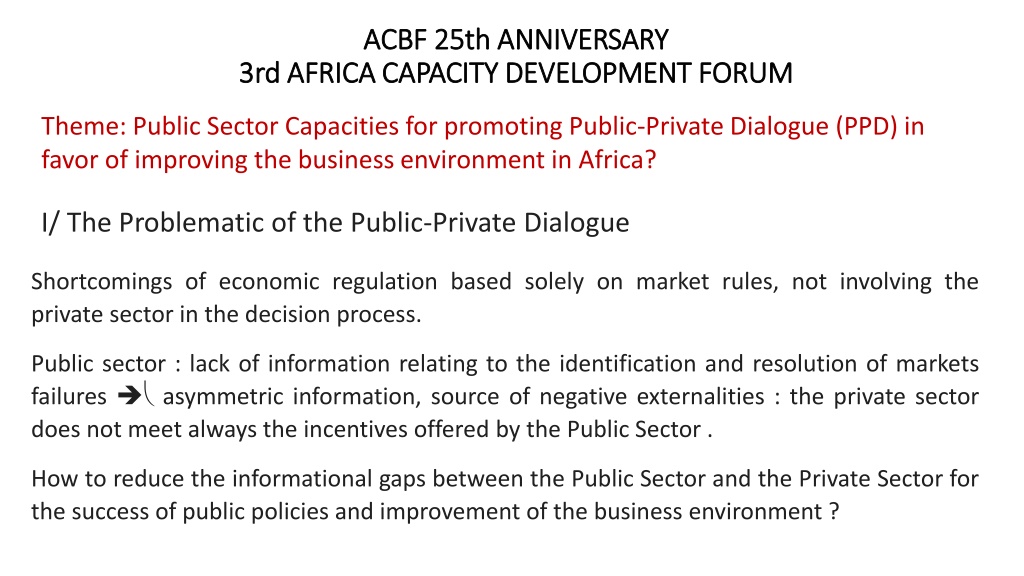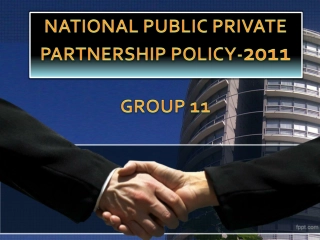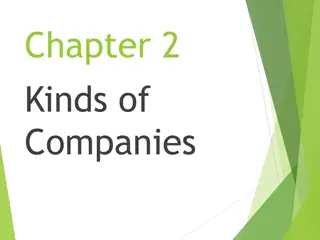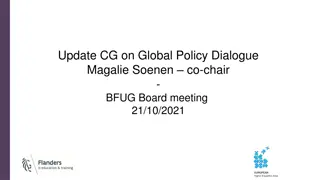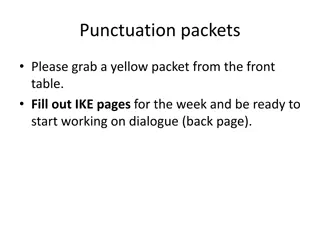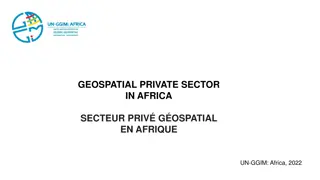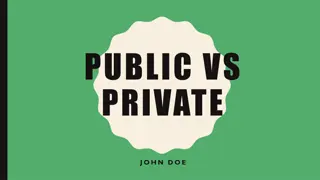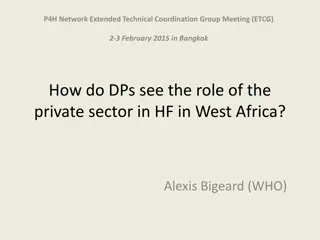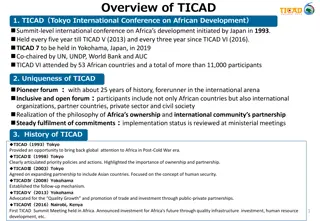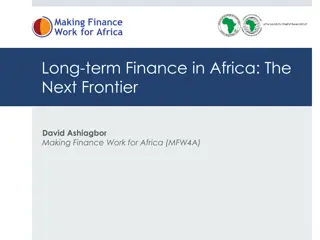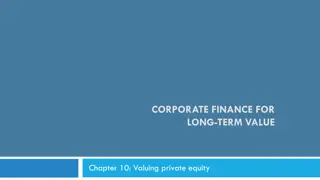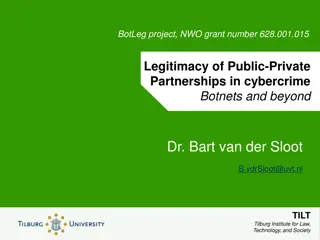Enhancing Public-Private Dialogue for Development in Africa
Addressing the shortcomings in public-private dialogue can lead to improved business environments in Africa. The challenges include information gaps, lack of involvement of the private sector in decision-making, and issues with economic regulation. Successful examples like the Cameroon Business Forum and Burkina Faso's Public and Private Sectors Consultation Committee showcase the positive effects dialogue can have on policies and business climate. Capacity building in areas like national strategy development, financial independence, and monitoring and evaluation can enhance public-private partnerships further.
Download Presentation

Please find below an Image/Link to download the presentation.
The content on the website is provided AS IS for your information and personal use only. It may not be sold, licensed, or shared on other websites without obtaining consent from the author.If you encounter any issues during the download, it is possible that the publisher has removed the file from their server.
You are allowed to download the files provided on this website for personal or commercial use, subject to the condition that they are used lawfully. All files are the property of their respective owners.
The content on the website is provided AS IS for your information and personal use only. It may not be sold, licensed, or shared on other websites without obtaining consent from the author.
E N D
Presentation Transcript
ACBF 25th ANNIVERSARY ACBF 25th ANNIVERSARY 3rd AFRICA CAPACITY DEVELOPMENT FORUM 3rd AFRICA CAPACITY DEVELOPMENT FORUM Theme: Public Sector Capacities for promoting Public-Private Dialogue (PPD) in favor of improving the business environment in Africa? I/ The Problematic of the Public-Private Dialogue Shortcomings of economic regulation based solely on market rules, not involving the private sector in the decision process. Public sector : lack of information relating to the identification and resolution of markets failures asymmetric information, source of negative externalities : the private sector does not meet always the incentives offered by the Public Sector . How to reduce the informational gaps between the Public Sector and the Private Sector for the success of public policies and improvement of the business environment ?
II/ Some Examples and Effects of Public-Private Dialogue Cameroon Cameroon Business Forum (CBF) since January 2009 = platform for dialogue and cooperation between the public and the private sectors.The CBF has played a key role in the enactment of laws on electronic commerce and cybercrime, in view of the dematerialization of Douala port activities; operationalization of the General Office of Foreign Trade Operations (GUCE) ; and the establishment of two land transactions facilitation counters for commercial enterprises respectively in Douala and Yaounde. This framework enabled Cameroon to improve its ranking in the Doing Business . Burkina- Faso Commission de concertation Etat-Secteur Priv (Public and Private Sectors Consultation Committee) established in 1992. Government - Private Sector Meeting (RGSP): each year. The RGSP contributed significantly to improving the business climate and enabled Burkina-Faso to be one of the first reformers of the West African Economic and Monetary Union (UEMOA).
II/ Some Examples and Effects of Public-Private Dialogue (Contd) C te d'Ivoire Comit de Concertation Etat-Secteur Priv ( CCESP ) established in 2001 = a relevant framework for consultation and arbitration of conflicts between the state and the private sector. Some achievements: (i) establishment of the National Working Group on the Competitiveness of Enterprises with the completion of the study on the competitiveness of enterprises in 2014 , (ii) the proposed rationalization of licensing and inspections system , (iii) conducting surveys in 2012 and 2014 as part of the watch on the quality of relations between the State and the Private Sector ; ( iv) Regulatory action from the private public dialogue, such as the Convention on Public Order.
III/ Capacity needs for more efficient PPD Cognitive abilities for the development of national strategies for PPD Financial capacities for better operation of existing PPD : heavy dependence vis- -vis donors. Capacity for Monitoring and Evaluation / weaknesses of a PPD = lack of effective monitoring and evaluation systems. Ability to conduct empirical analysis on the private sector and policy impact analysis (ex . Impact the minimum wage increase in C te d Ivoire in 2014). Others : Economics of the Firm / Internal Labour Markets / Economics Organizations / Sociology of Business / Business Law / Taxation / Business Management , etc.
